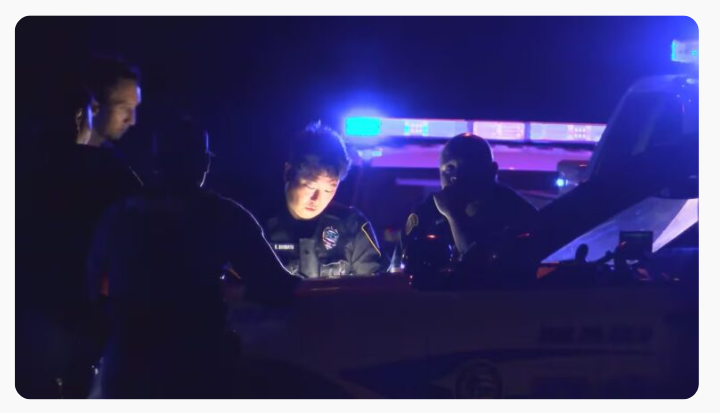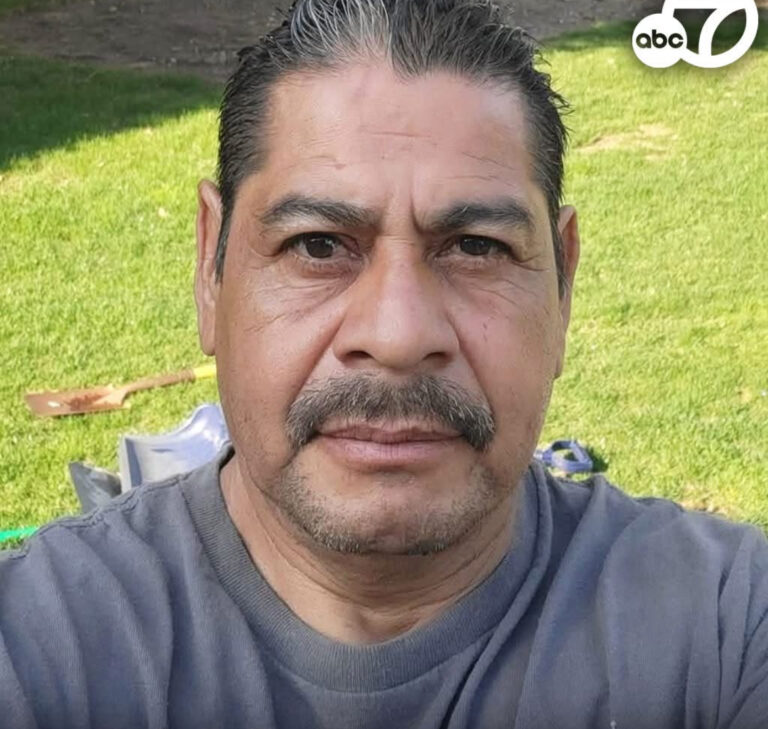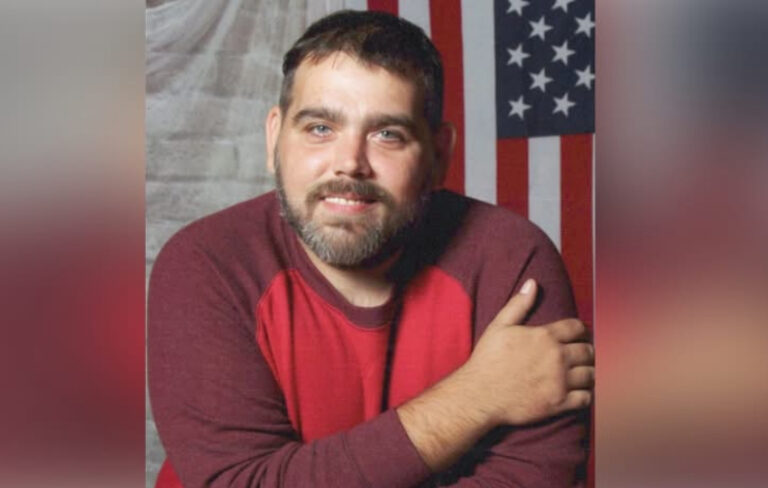WASHINGTON, D.C. — Thomas Pham LeGro, a 48-year-old Pulitzer Prize-winning journalist and Deputy Director of Video at The Washington Post, has been arrested and charged in a federal child pornography case. The arrest, which took place on Thursday, June 26, 2025, has stunned the media industry and triggered wide-ranging conversations about accountability, professional ethics, and child safety in digital workspaces.
LeGro made his initial appearance in U.S. District Court on Friday, June 27, where a federal magistrate judge ordered that he be held in custody pending a detention hearing set for the following week. According to federal prosecutors, the charges stem from an ongoing FBI investigation that allegedly uncovered disturbing digital evidence stored on a device linked to LeGro’s professional workspace.
Shockwaves Across the Media Industry
The arrest has sent shockwaves through journalistic and media circles, both due to the nature of the charges and the high-profile position held by the accused. LeGro, who had built a decades-long reputation for award-winning work in digital storytelling and visual journalism, was widely regarded as a leader in his field. His contributions to national and international news coverage spanned natural disasters, conflicts, social justice, and political upheaval.
Many in the journalism world have expressed disbelief and sorrow at the allegations. Former colleagues and industry peers have reacted with a mixture of heartbreak and condemnation, acknowledging the seriousness of the charges while struggling to reconcile them with the professional image he had cultivated.
An internal statement from The Washington Post confirmed that LeGro had been placed on immediate administrative leave and that the organization is fully cooperating with the federal investigation. “These allegations are profoundly disturbing and go against everything our institution stands for,” a spokesperson said. “We are committed to full transparency and legal compliance as the investigation continues.”
Details of the Federal Case
According to the U.S. Attorney’s Office, the charges involve possession of material depicting the sexual exploitation of minors. The FBI’s investigation reportedly began after receiving a tip from a cybersecurity compliance system, which flagged suspicious digital content associated with a device accessed under LeGro’s work credentials. That device, believed to be his office computer, was seized under a federal warrant.
Forensic analysis of the seized device allegedly uncovered a cache of illegal content, some of which was categorized as “Category A” by investigators—a classification reserved for some of the most severe forms of child sexual abuse material. Authorities say that metadata associated with the files indicates they were stored intentionally and accessed on multiple occasions.
Court documents further allege that the content was not discovered through automated accidental downloads, but through deliberate searches and transfers. Agents are also reportedly reviewing additional storage devices found at LeGro’s residence in Washington, D.C., which were seized during the execution of a separate search warrant.
While no evidence has thus far linked the accused to the production or distribution of such material, investigators say that more charges may be forthcoming depending on what further forensic examinations reveal.
Legal Proceedings and Detention
At the Friday court appearance, the prosecution argued strongly for continued detention, citing the nature of the alleged offense, the volume of material reportedly discovered, and the risk to public safety. The defense, while not contesting the initial detention order, requested a full bail hearing to present mitigating factors, including the defendant’s professional background, community ties, and lack of prior criminal history.
The judge ruled that LeGro should remain in custody until a formal bail hearing can be held next week. During that hearing, the court will determine whether the accused poses a flight risk or threat to the community, and whether conditions such as electronic monitoring, travel restrictions, or home confinement would be sufficient if pre-trial release were to be granted.
Legal experts say that in federal cases involving child pornography charges, pretrial detention is often ordered due to the seriousness of the allegations and federal sentencing guidelines, which can mandate lengthy prison terms upon conviction.
Community Reaction and Broader Concerns
The news of LeGro’s arrest has rippled far beyond the newsroom, prompting outrage, concern, and calls for broader scrutiny of digital access and cybersecurity controls in professional environments. Parents, educators, and child safety advocates have voiced their dismay that such materials could be accessed on devices tied to a respected institution.
Several child protection organizations have released statements calling for systemic reforms, including more frequent audits of employee computer usage, stricter digital monitoring systems, and a reexamination of workplace policies regarding data access and employee conduct.
“Digital crimes against children are uniquely insidious because they often go undetected for long periods,” one child advocacy group noted. “This case is a stark reminder that no industry, no matter how reputable, is immune to hidden abuse. Institutions must be vigilant in safeguarding children—even indirectly—by ensuring their infrastructure is secure and their employees are held to the highest ethical standards.”
In Washington, lawmakers and public officials have renewed discussions about strengthening child pornography laws, increasing funding for cybercrime units, and bolstering efforts to trace and dismantle online networks that distribute such material.
Institutional Response
The Washington Post has pledged full cooperation with law enforcement and has launched an internal review to determine whether any organizational policies or safeguards were breached. The company is working with outside legal counsel and cybersecurity consultants to conduct an independent audit of digital assets, employee access logs, and information-sharing protocols.
Employees at the paper were notified of the arrest via an internal memo, which acknowledged the deeply troubling nature of the situation and offered counseling services to staff affected by the news. Editors and human resources personnel have since conducted a series of private meetings to address staff concerns and reaffirm the organization’s values and commitment to ethical journalism.
Several high-profile journalists and media ethics professors have weighed in on the situation, pointing to the need for clear separation between personal conduct and professional accomplishments, while also reinforcing that accountability must be swift and unequivocal when abuse is uncovered.
The Human Toll of Digital Exploitation
Beyond the legal implications, this case underscores the enduring trauma experienced by victims of child exploitation. Authorities have stressed that every file of abuse material represents real harm to a real child—many of whom may never be identified or rescued. While the material in question was found in digital form, the pain and damage it reflects are profound and lasting.
This has reignited public discourse around the broader network of content creation, distribution, and consumption that sustains such exploitation. Advocates argue that punishment must go beyond individual offenders to dismantle the systems—technological, financial, and cultural—that allow such crimes to persist.
Digital platforms, tech companies, and media organizations are now facing renewed pressure to invest in tools that detect abuse material, report it proactively to law enforcement, and prevent it from ever being uploaded in the first place.
Looking Ahead
As the investigation into Thomas Pham LeGro’s alleged crimes continues, all eyes will be on the upcoming bail hearing and subsequent legal proceedings. The case represents a sobering reminder of the hidden dangers that can lurk behind even the most respected professional personas.
Federal prosecutors have made clear that the case will be pursued with the utmost seriousness and that additional charges remain a possibility depending on the outcome of ongoing forensic examinations.
The journalism world, still reeling from the news, must now reckon with the questions it raises about trust, responsibility, and the moral boundaries that all professionals—regardless of position—must be held to.
For now, the accused remains in federal custody. The public waits, watching as a process built on justice, transparency, and accountability moves forward.











Leave a Reply